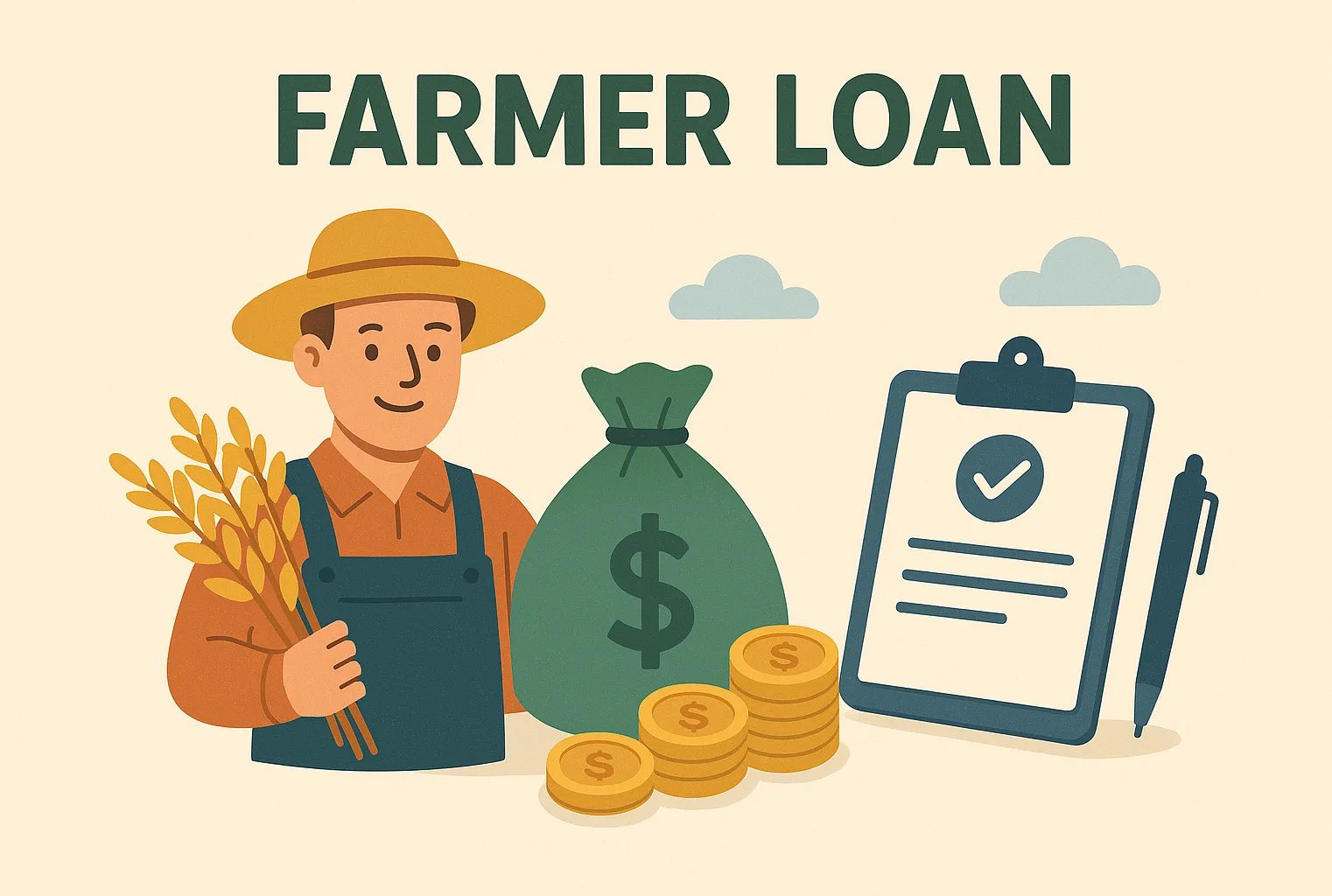The Africa Agri-Food Development Programme (AADP) 2025 is one of the most impactful initiatives aimed at strengthening business partnerships between Africa and Ireland in the agricultural and food production sectors.
Jointly managed by Ireland’s Department of Agriculture, Food and the Marine (DAFM) and the Department of Foreign Affairs (DFA), the programme is designed to encourage sustainable, mutually beneficial collaborations that promote food security, increase agricultural productivity, and create jobs across African countries.
With funding support of up to €100,000 available for eligible projects, the AADP stands out as a significant opportunity for African agri-SMEs and their Irish partners to scale up their operations and access international markets.
Over the years, the AADP has been instrumental in supporting ventures that focus on innovative farming techniques, sustainable food processing, and market-driven solutions.
This programme is not just about providing money; it’s about empowering businesses that have the potential to create real economic value, improve livelihoods, and contribute to long-term food systems resilience.
In the 2025 edition, the emphasis remains on projects that demonstrate strong commercial viability, environmental responsibility, and tangible benefits for local communities.
The agri-food industry is a cornerstone of economic development for many African nations, employing millions and contributing a significant share to national GDPs.
However, challenges such as limited access to financing, outdated farming methods, inadequate storage and processing facilities, and restricted export opportunities continue to hinder growth.
The AADP seeks to bridge these gaps by enabling African businesses to partner with experienced Irish companies, bringing in technical expertise, innovative solutions, and global market connections.
This creates a win-win scenario where African enterprises can upgrade their production capacity and Irish companies can expand their footprint in emerging markets.
The 2025 funding call provides agri-SMEs with a pathway to secure substantial financial support for projects that can be implemented over a period agreed upon by the partners.
Importantly, this funding is structured in a way that prioritizes joint ventures that have clearly defined goals, measurable outcomes, and a shared commitment to sustainability. The grant can be used for a wide range of project activities, including research and development, pilot production, value chain improvement, and capacity building for farmers and workers.
Applicants should understand that competition for AADP funding is intense. Only well-prepared proposals that demonstrate commercial and developmental merit will be considered. This means having a strong business plan, a clear implementation strategy, and evidence of mutual commitment from both African and Irish partners.
Beyond the financial aspect, selected projects also benefit from the credibility and international exposure that comes with being part of an official Irish government-backed programme. This recognition can open doors to further investment, additional market opportunities, and long-term strategic growth.
As the world continues to place greater focus on sustainable agriculture and responsible food systems, the Africa Agri-Food Development Programme plays a critical role in supporting the transformation of Africa’s agricultural landscape.
By helping to align local production with global standards, it enables African farmers and agribusinesses to compete more effectively in regional and international markets. The 2025 edition builds on lessons learned from previous years, with an even stronger emphasis on impact measurement, gender inclusion, climate-smart agriculture, and innovation-driven growth.
In essence, the AADP 2025 is not just another funding opportunity. It is a strategic partnership platform that empowers African and Irish enterprises to co-create solutions for pressing food security challenges while driving profitable, sustainable business ventures.
For agri-SMEs ready to take their operations to the next level, this programme represents a unique chance to access capital, technical expertise, and valuable market networks, all under the umbrella of a government-supported, results-oriented initiative.
Eligibility Criteria for the Africa Agri-Food Development Programme
The Africa Agri-Food Development Programme (AADP) 2025 is open to businesses that can demonstrate a genuine capacity to execute impactful agricultural and food-related projects in Africa in partnership with Irish entities.
To ensure that funding goes to the right projects, the programme has set out clear eligibility rules that applicants must meet before their proposals are considered. Meeting these requirements is essential not only for application acceptance but also for ensuring the proposed project aligns with the objectives of the programme.
The primary eligibility requirement is that the proposed project must be a joint venture between at least one Irish registered company and one registered company in an African country.
The partnership must be built on clear business objectives, shared responsibilities, and mutual benefits. This collaboration is a key feature of the AADP, as the programme is designed to strengthen commercial links between Africa and Ireland while promoting sustainable agri-food development.
African partners must be legally registered businesses operating in the agricultural or food sector, or in sectors directly related to agri-food value chains, such as agricultural technology, food processing, storage, packaging, or distribution.
Irish partners must also be registered companies, capable of contributing technical expertise, funding, or market access. Non-profit organisations, research institutions, and cooperatives can be part of the partnership if they play a supporting role, but at least one commercial entity from each side must be involved.
The programme is aimed at small and medium-sized enterprises (SMEs) that have the capacity to implement projects on the ground. Start-ups can also apply, provided they have a viable business plan and the necessary technical or operational capacity.
The AADP is not intended for purely charitable projects; proposals must be commercially viable while delivering measurable developmental benefits such as job creation, improved food security, and capacity building for farmers or workers.
Funding is available for both feasibility studies and full projects. For feasibility studies, applicants can apply for up to €25,000 to explore the potential of a proposed venture. For full projects, the funding ceiling is €100,000.
In both cases, applicants must demonstrate that they will contribute at least 50% of the total project cost from their own resources or other funding sources. This co-funding requirement ensures that both partners are financially committed to the success of the project.
Geographically, the programme is open to projects in all African countries that are eligible for Irish development cooperation.
However, priority may be given to proposals targeting countries where Ireland has a strong development presence, such as Ethiopia, Malawi, Mozambique, Sierra Leone, Tanzania, and Uganda. Regardless of location, projects must be capable of delivering results that are measurable, sustainable, and replicable.
Environmental sustainability is another important eligibility factor. Projects must adopt climate-smart agricultural practices or demonstrate that they will not cause environmental harm.
This includes avoiding deforestation, preventing soil degradation, promoting water efficiency, and ensuring responsible use of pesticides and fertilisers. Proposals that integrate renewable energy solutions, waste reduction strategies, or circular economy approaches will be viewed favourably.
Furthermore, the programme strongly encourages gender inclusion and youth participation. Applicants should show how their project will create opportunities for women and young people in the agricultural sector. This could involve training, employment, access to land or credit, or other forms of empowerment.
Ultimately, eligibility for the AADP is not just about ticking boxes. It’s about proving that your project is a serious business venture capable of delivering both economic returns and positive social impact. Applicants who can demonstrate strong partnerships, sound business planning, environmental responsibility, and inclusivity will stand the best chance of securing funding.
Requirements for the Africa Agri-Food Development Programme
While the eligibility criteria determine whether a business can apply, the requirements outline what an applicant must prepare and commit to in order to be considered for funding. These requirements go beyond basic eligibility; they reflect the programme’s expectations for project design, implementation, and accountability.
The first major requirement is the existence of a formal partnership agreement between the African and Irish companies involved. This agreement should clearly define each party’s roles, contributions, and responsibilities.
It should also outline the project objectives, timelines, budget commitments, and methods for resolving disputes. A well-prepared partnership agreement is critical because it demonstrates the seriousness of the collaboration and provides a framework for joint execution.
Applicants are also required to submit a detailed business plan. This document should clearly explain the nature of the project, the market opportunity it addresses, and the strategies for achieving commercial success.
It should include financial projections, market analysis, risk assessment, and an implementation plan. The business plan must also highlight the developmental benefits of the project, such as job creation, technology transfer, and improved market access for local farmers.
In addition, the AADP requires that applicants match at least 50% of the total project costs. This means if a project costs €200,000, the partners must collectively provide €100,000 from their own resources or other investors.
The programme’s funding will then cover the remaining €100,000. This cost-sharing model ensures that both partners have a vested interest in the project’s success.
Monitoring and evaluation is another requirement. Applicants must commit to providing progress reports and financial statements at agreed intervals. These reports will assess whether the project is meeting its objectives and using funds appropriately. The AADP places strong emphasis on accountability and transparency, so clear documentation and regular updates are essential.
Environmental and social responsibility are also built into the requirements. Projects must align with principles of sustainable agriculture and demonstrate that they will not cause harm to the environment or local communities.
Where relevant, applicants may be required to submit an environmental impact assessment or describe mitigation measures for any potential negative effects.
Capacity to deliver is equally important. The programme expects that both African and Irish partners have the necessary skills, infrastructure, and resources to execute the project.
If additional training or equipment is needed, the business plan should explain how these will be obtained before or during project implementation.
Compliance with local and international regulations is another key requirement. Applicants must ensure that their business operations adhere to the laws of the host country and any relevant trade, labour, and environmental regulations. Projects that involve export activities must comply with international trade standards and certifications.
Finally, the AADP requires that projects have a clear pathway to sustainability beyond the funding period. This means that once the grant is exhausted, the business should be able to continue operations profitably without further donor support.
A clear exit strategy or revenue model should be included in the application to demonstrate how the project will remain viable in the long term.
Documents Required for the Africa Agri-Food Development Programme
A successful application to the Africa Agri-Food Development Programme (AADP) 2025 begins with submitting the correct set of documents. The documentation stage is critical because it allows the programme administrators to verify the legitimacy of your business, assess your project proposal, and confirm that your partnership meets the stated criteria.
Providing incomplete or inaccurate documentation can lead to disqualification, regardless of how strong your project idea may be. For this reason, applicants must be thorough, organised, and clear in presenting their supporting materials.
The first document required is a comprehensive project proposal. This is more than a short description; it is a structured, detailed document explaining the project’s purpose, its commercial potential, and its developmental impact.
The proposal should include background information on the partners involved, the problem or opportunity being addressed, the proposed solution, and the expected results.
Applicants must ensure that the proposal demonstrates how the partnership aligns with AADP’s objectives of fostering sustainable agri-food development between Africa and Ireland.
A formal partnership agreement between the African and Irish companies is also necessary. This signed document should clearly state the contributions of each partner—whether in the form of capital investment, technical expertise, equipment, or human resources.
It should also specify ownership structures, profit-sharing arrangements, and responsibilities in decision-making. The AADP funding body needs to see that the partnership is well-defined and based on a shared commitment.
Company registration documents for both partners are required to confirm that the entities are legally recognised in their respective countries. For African companies, this could include a certificate of incorporation or a business license from the relevant government authority.
For Irish companies, official registration documentation from the Companies Registration Office (CRO) will be needed. These documents must be current and valid.
Applicants must also provide financial statements to demonstrate their financial capacity to contribute the required 50% co-funding. These statements should cover at least the previous one or two financial years, showing revenue, expenses, and profitability where applicable.
In the case of start-ups without an extensive financial history, evidence of available funds or firm commitments from investors may be acceptable.
Another essential document is a detailed budget breakdown for the project. This should list all expected expenses, such as equipment, raw materials, staff salaries, training, logistics, and marketing.
The budget must also indicate which costs will be covered by the AADP grant and which will be covered by the partners’ own contributions. Clarity in the budget presentation helps evaluators understand the project’s financial needs and feasibility.
Projects that may have environmental impacts will be expected to provide an environmental impact statement or an assessment outlining how potential negative effects will be mitigated. This is especially important for agricultural projects involving land use, water resources, or chemical inputs. Demonstrating compliance with environmental best practices can strengthen an application.
Where applicable, applicants should also include market research reports or data supporting the demand for the proposed product or service. This helps verify that the project is market-driven rather than purely experimental. Similarly, any letters of intent from buyers, distributors, or other stakeholders can add credibility to the proposal.
Resumes or profiles of key project personnel are another requirement. The AADP needs to be confident that the people leading and implementing the project have the skills and experience necessary for success. This includes managers, technical experts, and anyone involved in daily operations.
Finally, applicants should submit any relevant certifications—such as quality assurance, food safety, or organic production certifications—that demonstrate compliance with industry standards. These credentials can enhance the competitive position of the project in both local and international markets.
In essence, the documents required for AADP funding are designed to give evaluators a complete picture of the project’s feasibility, the strength of the partnership, and the ability of the applicants to deliver results.
Organizing these documents clearly, checking for accuracy, and ensuring they meet submission guidelines will significantly improve the chances of progressing to the approval stage.
Application Process for the Africa Agri-Food Development Programme
Applying for the Africa Agri-Food Development Programme 2025 is a structured process that requires careful planning and strict adherence to guidelines.
The programme’s administrators aim to ensure that all applications are evaluated fairly and that funding goes to projects with the highest potential for success. Understanding each step of the process can help applicants avoid mistakes and submit a compelling, complete application.
The process begins with the release of the official call for applications by the Irish Department of Agriculture, Food and the Marine (DAFM) and the Department of Foreign Affairs (DFA).
This call provides the application deadlines, eligibility details, funding categories, and submission requirements. It is critical to read this call in full before starting your application, as missing information can lead to delays or rejection.
Applicants must first ensure that their project concept aligns with the programme’s objectives. This means confirming that it is a joint venture between an African and an Irish company, has a strong commercial focus, and delivers developmental benefits. Once alignment is confirmed, the partners should work together to draft the project proposal and gather all required documents.
The next step is to complete the official application form. This form usually includes sections for project details, partner information, funding requests, and a declaration of compliance with the programme’s rules. The application form must be completed accurately, as inconsistencies between the form and the supporting documents can cause problems during evaluation.
Once the application form and supporting documents are ready, they must be submitted before the stated deadline. In most cases, applications are submitted electronically through the official AADP online portal or via email to the designated programme contact. Applicants should ensure that all files are clearly labelled, legible, and in accepted formats, such as PDF or Word documents.
After submission, applications go through a preliminary review to check eligibility and completeness. If any documents are missing or the application does not meet basic criteria, it will be rejected at this stage.
Eligible applications then move to the detailed evaluation stage, where they are assessed on criteria such as commercial viability, developmental impact, sustainability, and the strength of the partnership.
Projects that score well in the evaluation may be invited to provide additional information or to attend an interview or presentation with the programme panel. This stage allows applicants to clarify points in their proposal and demonstrate their commitment in person or via virtual meetings.
Following evaluation, the programme committee makes funding decisions based on available resources and project merit.
Successful applicants receive a formal letter of offer outlining the amount of funding approved, the conditions for disbursement, and the reporting obligations. At this point, partners must formally accept the offer and sign any required funding agreements.
The final stage is the disbursement of funds, which usually happens in phases tied to project milestones. Regular reporting and monitoring follow, ensuring that the project stays on track and funds are used as intended.
Throughout the application process, clear communication between partners, accurate documentation, and attention to deadlines are essential. Given the competitive nature of the AADP, submitting a well-prepared, complete application is the most effective way to stand out.
How to Get Approval for the Africa Agri-Food Development Programme
Securing approval for AADP funding requires more than just meeting the eligibility criteria and submitting the necessary documents. It involves presenting a project that convinces evaluators of its value, feasibility, and alignment with the programme’s goals. The approval process is competitive, and only projects that demonstrate excellence across multiple areas will receive funding.
One of the first steps toward approval is ensuring a strong, genuine partnership between the African and Irish entities. Evaluators look for evidence that both sides are equally committed, bringing complementary strengths to the table.
A superficial partnership formed solely for funding purposes will be viewed negatively. Instead, the application should highlight a history of collaboration, mutual trust, and clearly defined roles.
The quality of the project proposal plays a decisive role. Proposals should be clear, concise, and well-structured, addressing both the commercial and developmental aspects of the project.
The commercial section should show how the project will generate revenue, expand markets, and improve competitiveness. The developmental section should outline how it will benefit communities through job creation, skill development, food security, and environmental sustainability.
Demonstrating financial capacity and commitment is also essential. The co-funding requirement ensures that both partners have a stake in the project’s success. Applicants who can show that their contribution is secured—whether through cash reserves, confirmed investor funding, or in-kind contributions—are more likely to be approved.
A well-researched market analysis strengthens the case for approval. This should detail the target market, competition, pricing strategy, and distribution channels. Providing evidence of market demand through contracts, letters of intent, or previous sales data adds credibility to the proposal.
Environmental responsibility is another factor that can influence approval. Projects that adopt climate-smart agriculture, renewable energy, or waste reduction strategies tend to receive more favourable evaluations. Addressing environmental risks upfront and providing mitigation measures demonstrates forward-thinking and responsibility.
Measurable impact indicators are critical. The proposal should specify clear targets—such as the number of jobs to be created, the expected increase in production capacity, or the anticipated percentage reduction in post-harvest losses. Evaluators want to see how success will be measured and reported.
Lastly, the application should communicate a clear sustainability plan beyond the AADP funding period. Projects that can operate profitably without continuous donor support are far more attractive to funders.
In summary, getting approval for the Africa Agri-Food Development Programme requires a combination of a strong partnership, a convincing business case, secured co-funding, environmental responsibility, measurable impacts, and a long-term sustainability strategy. When all these elements come together in a well-prepared application, the chances of securing funding increase significantly.





